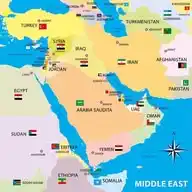
The Crown Media East Africa
386 subscribers
About The Crown Media East Africa
Join the conversation with The Crown Media East Africa, your trusted platform for East African news, commentary, and creative expression. Explore our blog for fresh perspectives, in-depth analysis, and inspiring
Similar Channels
Swipe to see more
Posts

*BREAKING NEWS:* The High Court has nullified the election of Elias Luyimbazi Nalukoola as Kawempe North Member of Parliament, citing electoral irregularities. The court has consequently ordered fresh elections to be conducted in the constituency.
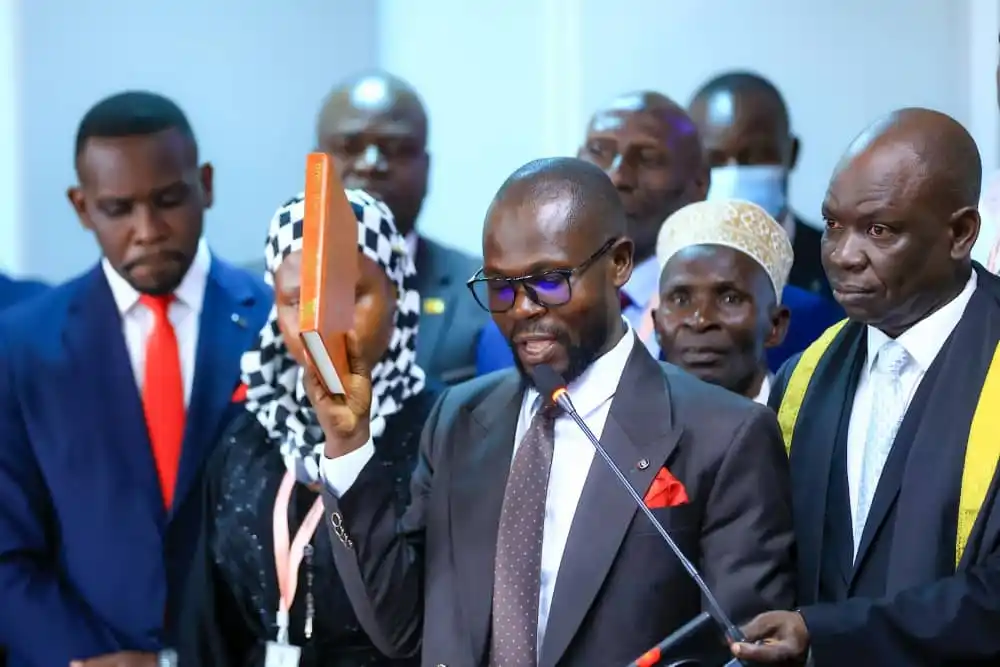

*Uganda’s Opposition Walkout: A Justified Protest or a Missed Opportunity?* The recent decision by opposition members of Uganda’s Parliament to stage a walkout during debate on the UPDF Amendment Bill 2025 has ignited debate across political circles. Led by Leader of the Opposition Joel Ssenyonyi, the lawmakers argued that their concerns were repeatedly ignored by the Speaker, Rt. Hon. Anita Among, leaving them no choice but to exit the plenary in protest. But was this the most effective strategy—or did it inadvertently hand the ruling party a smoother path to passing a controversial bill? The Opposition’s Argument: A Matter of Principle Ssenyonyi and his colleagues say the walkout was a last resort after all other attempts at engagement failed. They accuse the Speaker of disregarding parliamentary procedure and ignoring their objections to the bill, which they believe contains provisions that could militarize Uganda’s politics and weaken democratic oversight of the armed forces. > “We presented our case and appealed to the Speaker’s sense of reason, but she failed to respond appropriately,” Ssenyonyi said. “By walking out, we refused to legitimize a flawed process.” The opposition’s move follows a long tradition of parliamentary dissent, where walkouts serve to deny quorum or draw public attention to perceived injustices. Their decision to challenge the bill in court marks a strategic pivot—from legislative confrontation to legal recourse—a tactic that proved successful in past battles like the Age Limit Bill challenge. Criticism: Did the Walkout Weaken Their Position? Critics argue the opposition’s exit played into the hands of the ruling NRM, enabling the bill’s passage with little resistance. By leaving the floor, they may have missed key opportunities to: 1. Force a more transparent debate—Remaining could have allowed them to expose flaws and rally public opinion. 2. Exploit procedural tools—Tactics like filibustering or calling for votes could have delayed the process and increased scrutiny. 3. Maintain moral authority—Walking out risks being seen not as principled defiance but as abandoning the battlefield. Some political analysts contend that staying and resisting within Parliament, even in defeat, would have made a stronger statement and kept pressure on the majority. Legal Challenge: A Strategic Silver Lining? The opposition’s decision to contest the bill in court may yet prove decisive. Uganda’s judiciary has occasionally acted as a check on legislative and executive overreach—as seen when it nullified elements of the 2017 Age Limit Amendment. If the court finds constitutional flaws in the UPDF Bill, the walkout could be vindicated as part of a broader resistance strategy. Conclusion: Symbolic Protest vs. Practical Impact The opposition’s walkout was a bold symbolic act, underscoring their stance against what they describe as an autocratic and biased process. Yet whether it was the most effective tactic remains up for debate. While it denied the plenary the illusion of consensus, it also allowed the bill to pass with limited scrutiny. The court case now becomes the next battleground. A successful challenge could reframe the walkout as a courageous stand. A loss, however, may reinforce criticism that the opposition should have stayed and fought harder inside Parliament before turning to the courts. In Uganda’s increasingly polarized politics, the line between principled protest and strategic misstep remains razor-thin. Only time will tell whether this walkout will be remembered as a moment of bold resistance—or a missed opportunity in the fight for democratic checks and balances. What’s Your Take? Was the walkout the right move, or should the opposition have stayed and fought? Share your thoughts. By Bwire Jonathan Political Analyst | Crown Media East Africa May 20, 2025


Crown Media East Africa PEOPLE & POWER *The Choreographers of Power: Preparing the Unseen Heir* In the world of power, legacy is not left to chance. In one East African nation, two brothers have defied the odds of political time, ruling not just by mandate, but by mastery. For nearly four decades, they have held the center—one as the face of the state, the other as the force behind it. While one stood under the banner of public authority, the other operated through shadow diplomacy, quiet persuasion, and invisible hands. Their partnership—deliberate, strategic, and bound by blood—has reshaped governance into something beyond politics. They’ve merged the state with personal networks, fused loyalty with reward, and created a system where real decisions often happen far from Parliament. But even empires built on precision are not immune to the toll of age. Time, ever patient, has whispered its warnings. And these brothers are listening. Those close to the machinery say succession is not a matter of if but when—and more importantly, how. And while many speculate, few truly understand the meticulous nature of their planning. These are not men to leave behind unfinished scripts. They have watched other regimes fall apart in chaos, torn by ambition, faction, and foreign meddling. That fate, they are determined to avoid. What is becoming clearer with each passing year is that a quiet preparation is underway. Somewhere within the tightly guarded confines of military installations and high-level policy retreats, a transition is being scripted. The next man may not come from the usual corridors of party politics. In fact, insiders suggest he may already be among us—occasionally in uniform, increasingly vocal, often polarizing, but unmistakably positioned. He has the family name, the military stripes, the public flirtation with political thought—and the silent nods of powerful men. Though still controversial to some and unproven to others, his grooming appears both deliberate and inevitable. Those who understand the choreography of power say it’s not about popularity now, but positioning. Visibility. Familiarity. Normalization. His path has been laid not in opposition rallies or populist campaigns, but in strategic appointments, orchestrated tours, and growing online command. He represents not just continuity, but control—the kind of control the brothers have always prized: loyal, predictable, and intimately connected to their legacy. Still, nothing is openly declared. The silence is not a lack of direction; it is part of the plan. In this system, to name too early is to provoke. To move too fast is to invite resistance. But slowly, subtly, the successor is becoming less of a question and more of a reality. Whether the people will embrace him or resist him is yet to be seen. But one thing remains certain: the brothers have prepared. As the elder fades from the frontlines and the younger retreats deeper into his advisory cocoon, the stage is being set. It will not be a democratic torch passed in the traditional sense. It will be a torch protected by loyalty, enforced by structure, and lit with the quiet conviction that power—real power—is never surrendered. It is transferred, carefully, craftily, and completely. Written for Crown Media East Africa – People & Power “Because behind every throne, there is a designer of destinies.”


Crown Media East Africa: *UPDF Suspends Military Cooperation with Germany Amid Diplomatic Tensions* Kampala, May 25, 2025 – In a move that has sent shockwaves through diplomatic circles, the Uganda People’s Defence Forces (UPDF) has officially suspended all ongoing defence and military cooperation with the Federal Republic of Germany. This decision comes on the back of credible intelligence reports suggesting that Germany’s Ambassador to Uganda, His Excellency Mathias Schauer, is allegedly involved in subversive activities within Uganda. According to the UPDF, Schauer’s actions are linked to hostile political and military forces operating against the Ugandan government. Colonel Chris Magezi, Acting Director of Defence Public Information, confirmed the suspension, which will remain in place until a thorough resolution of the allegations. The UPDF described the actions as a serious breach of Uganda’s national sovereignty, which warranted an immediate response. “This suspension is necessary for the security and stability of Uganda,” said Colonel Magezi in his statement. “The involvement of a foreign diplomat in activities against the Ugandan government is unacceptable, and the matter will be fully addressed.” The suspension of military ties between the two nations raises concerns over the future of Uganda’s relationship with Germany, particularly in matters of security cooperation. The German Embassy in Kampala has yet to respond publicly to the allegations or the suspension. However, diplomatic sources suggest that talks between the two governments are expected to begin soon in an effort to resolve the issue.
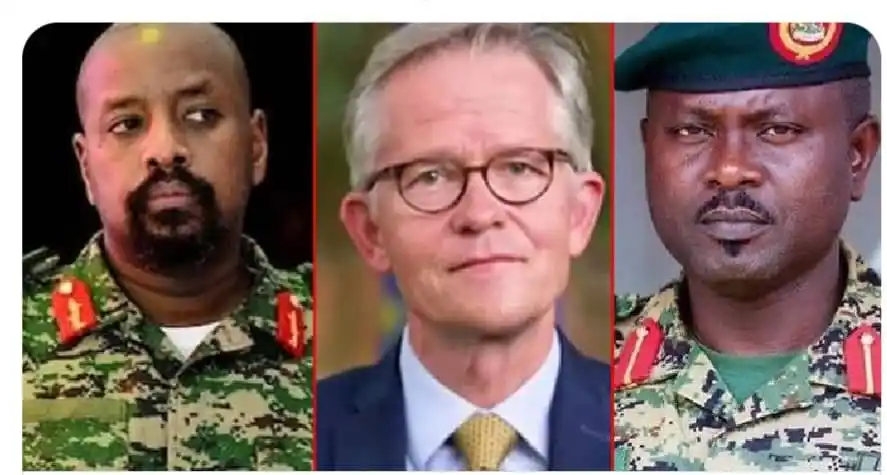

*The Crown Media East Africa* *SPECIAL FEATURE | May 2025* Thrones of Light and Shadows: The Unseen War for Power Beyond the microphones and manifestos lies a battlefield few see—a realm where politics becomes spiritual warfare. It is not merely a clash of parties and policies, but a confrontation between ancient forces of Light and Darkness, each vying to govern the soul of a nation. Some leaders ascend with clean hands and bowed heads. They seek wisdom from the Divine, lead with conscience, and legislate with integrity. Their authority is drawn from truth, their strength from humility. They stand as torchbearers of justice, lit by the lamp of righteousness. But others rise through darker covenants. In whispered rites and secret pacts, they trade allegiance to the occult for power. Witchdoctors replace advisors, and sacred altars become battlegrounds for dominion. Behind their polished appearances are rituals that bind not only themselves—but the people they vow to serve. Sex, too, becomes a sinister currency. In backrooms and corridors of influence, flesh is traded for favor. Ambition is seduced, innocence is weaponized, and loyalty is bought—not with vision, but with the body. In this shadow economy, human dignity becomes expendable. And looming above all is the throne of gold. Money buys crowds, bends laws, and buries truth. Elections are auctions. Promises are investments. And the people? Too often, they are sold as shares in a game they do not control. This is the architecture of power in our time: a throne contested not just by men, but by spirits. The true question in every election is not only who leads—but what governs them. In the end, the soul of a nation will answer to one force—Light or Darkness. The war is unseen, but the consequences are very real. — Published by The Crown Media East Africa

*UPDF Salutes Seven Generals as They Prepare for Retirement* Crown Media East Africa | 27 May 2025 | Retirement KAMPALA, UGANDA — The Uganda Peoples’ Defence Forces (UPDF) has today honored seven of its senior officers ahead of their formal retirement, with a ceremony held at the Ministry of Defence and Veteran Affairs (MODVA) headquarters in Mbuya. The officers, who include some of the most decorated and experienced generals in the force, were praised for their outstanding leadership, decades of dedicated service, and unwavering commitment to national and regional security. Those documented for retirement are: Lt Gen Peter Elwelu Maj Gen Hudson Mukasa Maj Gen Francis Ben Okello Maj Gen George Igumba Brig Gen John Byuma Brig Gen Dominic Twesigomwe Brig Gen Augustine Kamyuka Kyazze Speaking during the ceremony, Maj Gen Jack Bakasumba, the UPDF Chief of Joint Staff, commended the generals for their integral role in shaping the force’s professionalism, enhancing internal structures, and contributing to successful international peacekeeping missions, especially in Somalia under AMISOM/ATMIS. “These leaders have made remarkable contributions to national and regional peace. They leave behind a legacy of patriotism, discipline, and courage,” said Maj Gen Bakasumba. He emphasized that retirement in the UPDF is not an end but a vital transition that creates room for younger officers to grow, while allowing seasoned leaders to apply their experience in other spheres of national service. He noted that upcoming amendments to the UPDF Act, 2005, are expected to enhance retirement benefits, including medical care, disability compensation, and state-recognized burials. Quoting American biochemist Betty Sullivan, he added, “There is a whole new kind of life ahead, full of experience, just waiting to happen. Some call it retirement, I call it bliss.” Lt Col Onesmus Amanya, Deputy Director for Compensation, Pensions, and Gratuity, advised the retiring officers to remain health-conscious and continue upholding the discipline that defined their military careers. The documentation ceremony was attended by MODVA officials, legal officers from the Joint Services, and representatives from the Veterans Legal Aid Clinics, underscoring the significance of the moment in the UPDF’s tradition of honoring its departing leaders with dignity and respect.
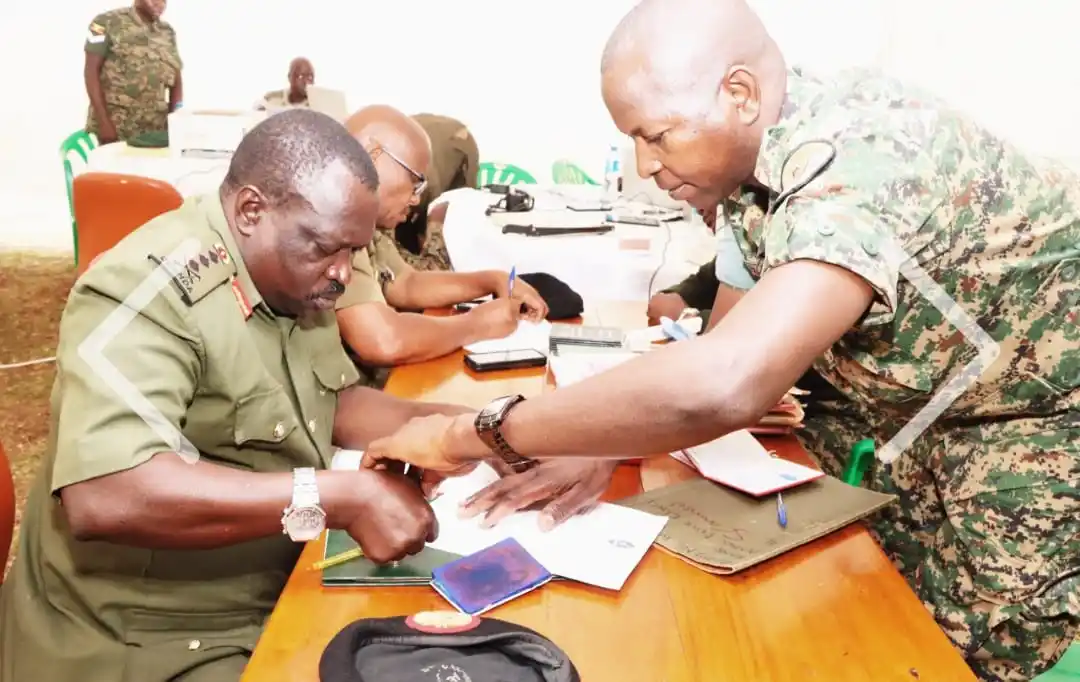

*UPDF Kills two terrorists in Munyonyo* Kampala, Tuesday, 3 June 2025 A UPDF counter-terrorism unit this morning intercepted and neutralized two armed terrorists in Munyonyo, an upscale city suburb. It was an intelligence led operation, and the security services are on heightened alert to ensure the Martyrs Day celebrations proceed without disruption. The general public is urged to remain calm but vigilant and report to the security services any suspicious individuals, objects or activities for immediate attention. CHRIS MAGEZI Colonel Acting Director Defence Public Information
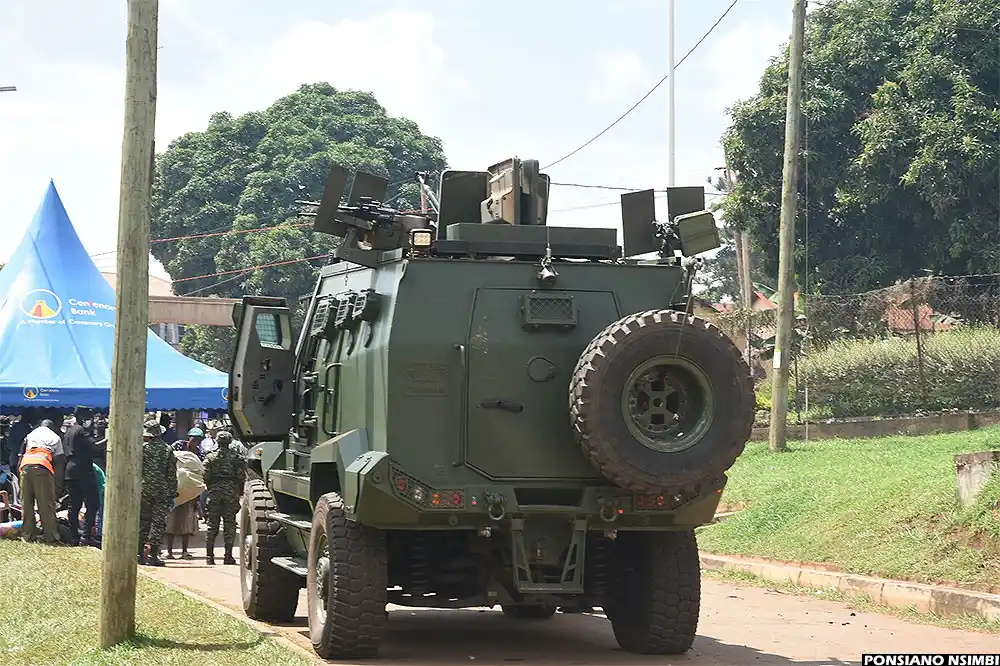

🕯️CROWN MEDIA EAST AFRICA TRIBUTE Ngũgĩ wa Thiong’o (1937–2025): The Pen That Freed Minds *By Crown Media East Africa Desk* *Published: May 28, 2025* The literary world and the African continent are in mourning following the passing of Ngũgĩ wa Thiong’o, the legendary Kenyan writer, academic, and cultural freedom fighter, who died in the United States at the age of 87 after a long illness. Ngũgĩ was more than a writer; he was a voice of resistance, a custodian of African dignity, and a global beacon of intellectual courage. Born in 1937 in Limuru, Kenya, under colonial rule, Ngũgĩ would rise to become one of Africa’s most influential thinkers—an author whose work not only chronicled African struggles but also ignited them. His early novels—Weep Not, Child, The River Between, and A Grain of Wheat—etched the cost of colonialism into the global conscience. But Ngũgĩ’s power went beyond the printed page. In the face of imprisonment, exile, and censorship, he boldly renounced writing in English and instead embraced his mother tongue, Gikuyu—an act of literary defiance that resonated across generations. He insisted that true liberation could not happen until African minds were decolonized, and African languages reclaimed. His groundbreaking essays such as Decolonising the Mind became academic and activist bibles. His Gikuyu-language play Ngaahika Ndeenda (“I Will Marry When I Want”) landed him in prison—but also solidified his place in history as a man unafraid to challenge power, whether colonial or postcolonial. Ngũgĩ’s global influence stretched from lecture halls in Nairobi and California to grassroots movements across the continent. He was a mentor to many, an inspiration to millions, and a constant reminder that storytelling is a form of resistance—and a tool for transformation. As we reflect on his passing, we do not say goodbye. We say asante—thank you—for teaching us that language is memory, that identity is sacred, and that Africa’s stories are best told in her own voice. Rest in power, Ngũgĩ wa Thiong’o. The pen may pause, but your words will live on. Forever.
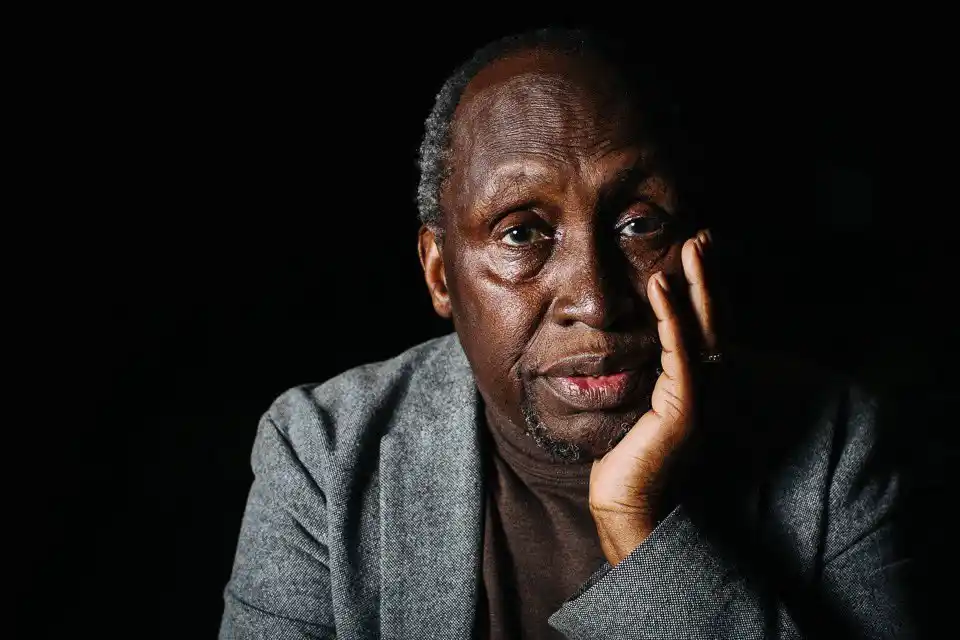

*SECURITY FORCES MONITORING EMERGING REBEL CELLS – UPDF* Crown Media East Africa – Kampala | Uganda’s security agencies have launched intensified operations against rising threats of armed rebellion, terrorism, and economic sabotage in parts of the country, according to a recent briefing from the Uganda People’s Defence Forces (UPDF). Over the past several months, dozens of suspects have been arrested and interrogated for their alleged involvement in organized armed groups, plots to bomb public spaces, and the targeted destruction of electricity infrastructure – a campaign that has caused widespread power disruptions, especially in central Uganda. Districts most affected by the vandalism include Wakiso, Mukono, Kayunga, Luweero, Nakaseke, Kiboga, Nakasongola, Mityana, Mubende, Mpigi, and the greater Masaka region. Security sources have revealed that some of the arrested individuals had previously posed as political activists affiliated with opposition groups, notably the National Unity Platform (NUP). A number of them have already been charged in courts of law and are currently on remand pending trial. The Inter-Agency Security Committee – chaired by the UPDF Chief of Defence Forces and comprising the Uganda Police Force, Prisons Services, and various intelligence units – is now operating jointly to dismantle terrorist and subversive cells, particularly those targeting vulnerable youth in Kampala’s informal settlements. In a recent high-level security meeting, the committee resolved to take firm and coordinated action against the architects and financiers of these networks, which are believed to be strategically working to destabilize the country in the lead-up to the 2026 general elections. According to intelligence reports, some of the funding and logistical support for these activities is suspected to be originating from foreign diplomatic missions based in Kampala. The German Ambassador to Uganda, His Excellency Mathias Schauer, has been specifically named in connection with what officials describe as “undiplomatic conduct” that violates the spirit of the Vienna Convention on Diplomatic Relations. “The Government of Uganda is actively engaging the relevant foreign mission through appropriate diplomatic channels to address these concerns,” The UPDF has condemned what it called “foreign interference in Uganda’s internal affairs,” warning that all actors involved—local or international—will be dealt with decisively. Authorities have also cautioned young Ugandans against falling into the trap of political exploitation, urging them instead to embrace government-backed programs aimed at wealth creation, skills training, and youth empowerment. “The security of our country is non-negotiable,” read part of the UPDF’s official statement. “We shall continue to identify, isolate, and prosecute all those working against Uganda’s peace and stability.” Crown Media East Africa will continue to monitor this developing story.


https://crowninvestigator.blogspot.com/2025/05/breaking-cycle-stop-electing-failed.html Bad leaders stay in power because they profit from our poverty, our divisions, and our silence. But when we stand together—educated, organized, and determined—we can break this cycle.














